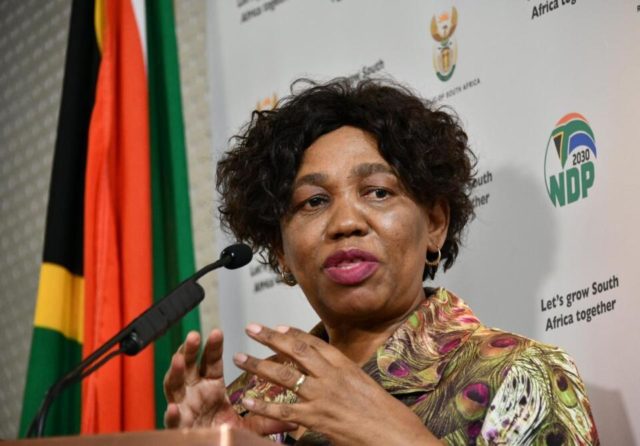Motshekga said the Department of Basic Education took several measures into consideration to help recover lost time.
Basic Education Minister Angie Motshekga addressed South Africa for the second time since schools were forced to close their doors due to the global Covid-19 pandemic and national lockdown.
Initially, the proposed date for schools reopening under strict guidelines was June 1 for grades 7 and 12. After much deliberation with different stakeholders, Motshekga did confirm that the phased reopening will still be happening from June 1. However, teachers are expected to return on May 25.
The Department of Basic Education (DBE) took several measures into consideration to help recover lost time. These are:
Schools reopening
The National Coronavirus Command Council and Cabinet have approved the reopening of schools as of June 1. This includes independent and public schools in metropolitan areas. “We will start with grades 7 and 12 and small schools. The other grades will follow in due course. In reopening of schools we have been guided by three basic principles; to save lives,” said Motshekga.
State of readiness
Motshekga said the department was confident that the reopening of school across provinces would happen as outlined in the protocol that has been developed. “The reports we got are showing that preparations have been taking place and good progress has been made. All indications are that the preconditions for the reopening of schools will be met obviously with the premium being on saving lives,” she added.
She also noted that the delivery of the Covid-19 essentials are being done in all provinces to ensure that they are stored in safe places. CEM agreed that provinces must move at the same pace to ensure that nobody is left behind. CEM (council of education ministers) emphasized the need to pay special attention to the health and safety of all learners, teachers and all employees in schools.
Co-morbidities
DBE is working with health professionals who have profiled the sector and will be issuing guidelines on how to manage them. “We also urge parents to work closely with schools to ensure that learners with pre-existing illness are also assisted,” said Motshekga.
Water
DBE entered into an Implementation Protocol agreement with the Department of Human Settlements, Water & Sanitation and Rand Water. “We will ensure that no schools goes without water,” she urged.
On re-engineering basic education
School principals are expected to put measures in place for equitable allocation of periods or time for teachers to cover the scope of the curriculum in saving the academic year. In the meantime, all curriculum enrichment programmes will be put on hold until further notice.
Transport
DBE is working with the Department of Transport to ensure that safety protocols are maintained, which will include:
– Everybody to sanitize hands on entering of bus
–
Manage distance between learners in the bus
–
Compulsory wearing of masks throughout the school day, starting before boarding transport
Revised school calendar
The revised school calendar will be gazetted soon. It indicates the opening and closing dates and the breaks in between.
Special schools and ECDs
“During consultation with social partners it became clear that we need a different approach when it comes to special schools. We are working with organisations who are advising us on the best way forward regarding the phased-approach of the special schools,” advised Motshekga.
As far as Early Childhood Development centres are concerned, Motshekga said the regulations for level 3 are being finalised and there will be a solution to the matter very soon.








